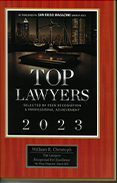California’s marijuana DUI laws may be prone to police bias
This article looks at the problem of relying on drug recognition experts to enforce drug DUI laws.
California recently became the largest state to legalize recreational marijuana. However, as the San Francisco Chronicle reports, it is unusual among legal marijuana states in not setting a chemical threshold for marijuana DUI. Instead, the state is enforcing drugged driving laws for marijuana by relying on drug recognition experts. While there are scientifically valid arguments for not wanting to use a chemical threshold for drugged driving, critics say that drug recognition experts come with their own problems, including vulnerability to police bias.
Why California hasn’t set a chemical threshold
Most legal marijuana states have decided to treat marijuana drugged driving similarly to how they treat driving under the influence of alcohol. Some states deem any driver who tests above a certain chemical threshold to be impaired, such as 0.08 blood alcohol concentration and that chemical threshold has been set at five nanograms of THC per 100 milliliters of blood.
THC is the psychoactive compound in marijuana that causes users to feel “high.” However, the problem with using THC as a way of measuring impairment is that the levels of THC in a person’s body do not always correspond with levels of impairment. A frequent marijuana user, for example, can have a THC level many times higher than the legal limit and not actually be impaired. An infrequent user, on the other hand, may have a THC level below the legal limit and be highly impaired.
Furthermore, THC remains in the body much longer than alcohol does. In fact, frequent users of marijuana can test positive for THC for up to three months afterwards.
Relying on drug recognition experts
It therefore makes sense that California has decided not to set a THC threshold for determining when drivers are too high to drive. Instead, the state is relying on drug recognition experts, who are police officers specially trained to detect signs of drug impairment.
However, drug recognition experts may not be much more reliable than chemical tests. As CBC News reports, the use of drug recognition experts has raised concerns about racial biases informing the judgment calls of such “experts.” In Georgia, one police force is being sued by the ACLU after a drug recognition expert arrested four men for drugged driving despite subsequent tests showing no drugs in their systems. The suit claims that the drug recognition expert’s racial biases led to the arrest rather than any objective proof that the men were impaired. The ACLU has warned that relying on drug recognition experts is tantamount to making arrests based on the “toss of a coin.”
Drug DUI help
Those who are facing DUI charges, whether involving drugs or alcohol, should get in touch with a criminal defense attorney as soon as possible. An experienced attorney can help clients understand what options they have and how they can most effectively fight back against the charges they are facing.







